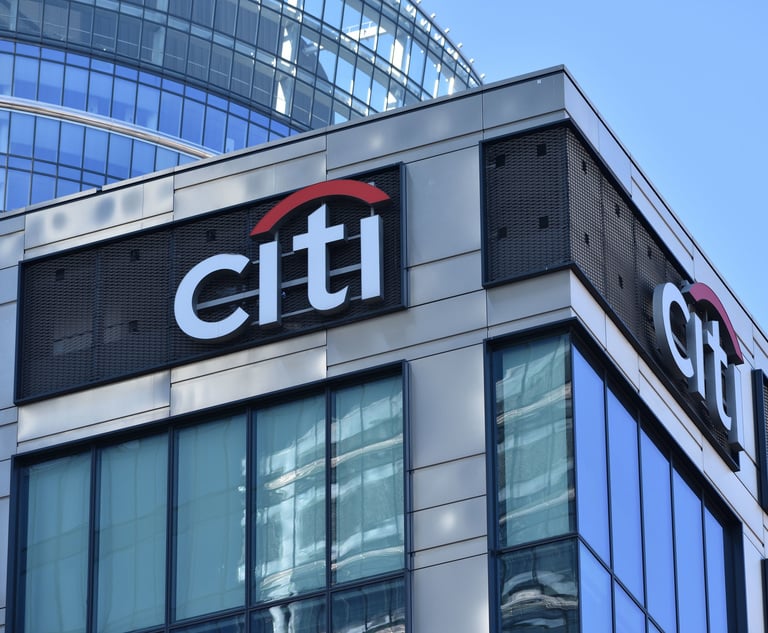Wipo outlines plans for virtual arbitration system
Online mediation- James Boxell finds a mixed response to the UN's online ambitions
March 10, 1999 at 07:03 PM
3 minute read
The World Intellectual Property Organisation (Wipo) is in the final stages of developing an internet-based system for resolving international intellectual property disputes.
Wipo, one of 16 specialised agencies belonging to the United Nations (UN), has initially targeted its virtual arbitration and mediation system at disputes involving internet domain names.
But Erik Wilbers, senior legal officer at the Wipo arbitration and mediation centre in Geneva, said the service would also eventually lend itself to other types of commercial disputes, particularly where electronic commerce was involved.
Wilbers, who spoke at last week's International Bar Association (IBA) conference in Zurich, Challenges of the Internet, said the boom in e-commerce meant the online resolution of disputes now made more sense.
"Wipo believes that the expansion of electronic commerce on the Internet may soon lead parties to prefer to settle disputes arising out of such commerce in the same way as it is conducted," he said.
According to Wilbers, who worked at Clifford Chance in Amsterdam before joining Wipo, the virtual arbitration service will also increase public access to dispute mechanisms and cut costs.
"Enabling people to initiate or defend a claim by accessing a website and completing electronic forms that guide them through the various stages of the process should reduce entry barriers to any available procedures," he said.
"The Wipo system is internet-based," Wilbers added. "Digital communication tools have been designed to allow parties to file requests in electronic form and exchange information online through secure channels. The system also includes automatic notifications, an electronic fee-payment system and databases to support logging and archiving of submissions."
However, Bird & Bird partner Hilary Pearson, one of the UK's leading IT and IP lawyers, said the Wipo proposals were still a subject of debate.
She said a significant level of criticism had been aimed at the new system because it seemed to favour big companies and big trademark owners. "I think there is a presumption in favour of the trademark owner," she said.
Pearson also said there was disquiet over suggestions that the Wipo service would be compulsory for the settlement of all domain name disputes. "Wipo, as a part of the UN, does not have a reputation for being a speedy and flexible organisation," she said. "The whole process could end up being slow and cumbersome, especially where you have cyber-squatters only looking to get money."
She said Wipo was scheduled to meet the US Department of Justice this week to discuss the department's misgivings about the plans. "Clearly, what the US says will have a big impact. It is the biggest internet player," Pearson added.
This content has been archived. It is available through our partners, LexisNexis® and Bloomberg Law.
To view this content, please continue to their sites.
Not a Lexis Subscriber?
Subscribe Now
Not a Bloomberg Law Subscriber?
Subscribe Now
NOT FOR REPRINT
© 2025 ALM Global, LLC, All Rights Reserved. Request academic re-use from www.copyright.com. All other uses, submit a request to [email protected]. For more information visit Asset & Logo Licensing.
You Might Like
View All
Singapore Litigators Shift Competitive Landscape as Another Senior Duo Sets Up Own Shop

Squire Patton Boggs Hires 7-Lawyer Team to Beef Up ESG Practice in Brussels
2 minute read

Skadden, White & Case Guide Citigroup Demerger in Mexico
Trending Stories
- 1Lawyers' Phones Are Ringing: What Should Employers Do If ICE Raids Their Business?
- 2Freshfields Hires Ex-SEC Corporate Finance Director in Silicon Valley
- 3Meet the SEC's New Interim General Counsel
- 4Will Madrid Become the Next Arbitration Hub?
- 5‘Ripe for SCOTUS’: Ruling Creates Circuit Split on NLRB’s Expanded Monetary Remedies
Who Got The Work
J. Brugh Lower of Gibbons has entered an appearance for industrial equipment supplier Devco Corporation in a pending trademark infringement lawsuit. The suit, accusing the defendant of selling knock-off Graco products, was filed Dec. 18 in New Jersey District Court by Rivkin Radler on behalf of Graco Inc. and Graco Minnesota. The case, assigned to U.S. District Judge Zahid N. Quraishi, is 3:24-cv-11294, Graco Inc. et al v. Devco Corporation.
Who Got The Work
Rebecca Maller-Stein and Kent A. Yalowitz of Arnold & Porter Kaye Scholer have entered their appearances for Hanaco Venture Capital and its executives, Lior Prosor and David Frankel, in a pending securities lawsuit. The action, filed on Dec. 24 in New York Southern District Court by Zell, Aron & Co. on behalf of Goldeneye Advisors, accuses the defendants of negligently and fraudulently managing the plaintiff's $1 million investment. The case, assigned to U.S. District Judge Vernon S. Broderick, is 1:24-cv-09918, Goldeneye Advisors, LLC v. Hanaco Venture Capital, Ltd. et al.
Who Got The Work
Attorneys from A&O Shearman has stepped in as defense counsel for Toronto-Dominion Bank and other defendants in a pending securities class action. The suit, filed Dec. 11 in New York Southern District Court by Bleichmar Fonti & Auld, accuses the defendants of concealing the bank's 'pervasive' deficiencies in regards to its compliance with the Bank Secrecy Act and the quality of its anti-money laundering controls. The case, assigned to U.S. District Judge Arun Subramanian, is 1:24-cv-09445, Gonzalez v. The Toronto-Dominion Bank et al.
Who Got The Work
Crown Castle International, a Pennsylvania company providing shared communications infrastructure, has turned to Luke D. Wolf of Gordon Rees Scully Mansukhani to fend off a pending breach-of-contract lawsuit. The court action, filed Nov. 25 in Michigan Eastern District Court by Hooper Hathaway PC on behalf of The Town Residences LLC, accuses Crown Castle of failing to transfer approximately $30,000 in utility payments from T-Mobile in breach of a roof-top lease and assignment agreement. The case, assigned to U.S. District Judge Susan K. Declercq, is 2:24-cv-13131, The Town Residences LLC v. T-Mobile US, Inc. et al.
Who Got The Work
Wilfred P. Coronato and Daniel M. Schwartz of McCarter & English have stepped in as defense counsel to Electrolux Home Products Inc. in a pending product liability lawsuit. The court action, filed Nov. 26 in New York Eastern District Court by Poulos Lopiccolo PC and Nagel Rice LLP on behalf of David Stern, alleges that the defendant's refrigerators’ drawers and shelving repeatedly break and fall apart within months after purchase. The case, assigned to U.S. District Judge Joan M. Azrack, is 2:24-cv-08204, Stern v. Electrolux Home Products, Inc.
Featured Firms
Law Offices of Gary Martin Hays & Associates, P.C.
(470) 294-1674
Law Offices of Mark E. Salomone
(857) 444-6468
Smith & Hassler
(713) 739-1250








